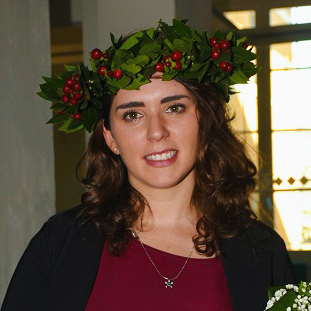OVID, BETWEEN PRINCIPALITY AND THE NEED FOR FREEDOM
5 min read
Although Ovid was born in the middle of the Augustan Principality, he was never entirely loyal to the emperor, or at least not in content. Often Maecenas, director of the circle in which the greatest cantors of the principality gathered, asked them to write in favour of the imperial power. Some of them, among which Propertius, avoided the problem through an expedient called recusatio, in which they affirmed that they were not skilled enough to narrate great deeds. However, they bent in some way and Propertius himself began to write demanding works, making elegy about politics and not only about amorous torments.
It should be noted that most of the authors, exponents of the Augustan period, were coming out of years of internal strife. Many of them had witnessed the rise and dictatorship of Caesar, as well as countless civil wars. Ovid, on the other hand, was born a little more than a year after Caesar’s death, on 20 March 43 BC, in a simpler time, even if full of changes.
Not only did his origin make him different from the others, but he did not want to sing of heroic deeds that would make a Principality valid, propagating itself as a continuator of the Republic. Ovid was a magister amoris, a Lothario ante litteram. He extolled the art of make-up and the deeds of women to make themselves attractive, admonishing married women in order not to read his works. At the same time that Augustus was passing laws on the importance of marriage and the illegality of remaining single, Ovid was writing a book on the art of seduction.
But Ovid’s need for freedom did not stop there: in his greatest work, The Metamorphoses, he approached the epic poem as a parody. He tells how Jupiter returns victorious to Olympus, filled with grandiose epithets, after the lowest act of deceiving Callisto and then raping her. He also narrated how Apollo pursues Daphne, caught up in a madness love that is not suitable for a god. There are plenty of examples of these derisive images, in which the gods persist in being afflicted with earthly afflictions, irascible and hot-tempered.
Love moves the Metamorphoses, in a continuous leitmotif of love and death, which finds its perfect synthesis in the myth of Narcissus, lover of himself and destined to die because he (re)knows himself. Ovid here plays on the theme of “gnothi seauton” (know thyself), the founding basis of all philosophy and thought. He distorts it, stating that Narcissus will live a happy life if he does not (re)know himself, destroying any important image of time.
In writing the Metamorphoses, Ovid created a didactic work, centred on the explanation of nature (whose most illustrious precedent was Lucretius) and at the same time an aetiological work of Callimachean’s style. This allows him to explain the origin of flowers (the narcissus, for example), cults, gods, myths, whatever he wants to tell the story of. At the same time, however, he also destroys Lucretius, in a continuous motion whereby his text passes through continuous advances and deconstructions. In this way, the echo is not a mere imago vocis in the style of Lucretius, but a real nymph (Echo, in fact) defined as a solo vocale nymph , not able to speak first, or to formulate a thought of its own.
Ovid also speaks of himself through the myth of Phaeton. Phaeton, son of the Sun, asks the Sun to drive his chariot through the sky. The Sun, reluctantly, accepts, telling him to follow the footprints in the sky, which he himself has traced, so that he can keep on the right path and not get lost. Phaeton will not be able to follow the footsteps in the sky, he will lose his way and risk destroying the whole world. Jupiter himself will have to intervene, hurling him out of the chariot and killing him. Phaeton is remembered by Ovid as a daring man, as the one who sought his own identity to the end, the one who wanted certainty and proved he could get it. The author sees a lot of himself in this myth: like Phaeton, in fact, he will go out of the furrow traced by the ancients, he will not be a new Virgil, he will not follow in the footsteps of the regime and in this Ovid himself finds his strength and his value.
At the end of the Metamorphoses he brings back the Pythagorean doctrine of metempsychosis, and with this expedient he affirms his own immortality, because his voice will pass from mouth to mouth, as the soul passes from body to body, and in this way he will continue to live. The distance from the regime is also found here: Ovid speaks of Caesar’s catasterism (his transformation into a star) and of Augustus’ future acceptance into heaven upon his death, but he positions himself, as author, above heaven and consequently above Augustus himself, in an extremely bold way.
Ovid’s freedom had, however, its consequences. In fact, he was exiled to Tomi, as far as he will tell because of a carmen and an error. The first one, probably, refers to the ars amatoria, mentioned above, too daring and libertine for the conservative sentiment of the time; but the error remains a mystery to this day. Ovid compares himself to Actaeon, punished for seeing Diana naked while wandering in the woods after losing his companions, he too feels punished ‘for having seen too much’.
At the end of the Metamorphoses Ovid affirms his immortality, saying “and if there is any truth in the presentiment of the vati (poets), I shall live” and his prophecy has undoubtedly been fulfilled.

Ciao, mi chiamo Martina e sono laureata in Lingue. Le mie passioni principali gravitavano da sempre intorno a letteratura, cultura, linguistica, viaggi, così ho deciso di intraprendere la strada della traduzione, specializzandomi grazie ad un Master. Adoro leggere, pratico beachvolley e amo stare a contatto con la natura.





